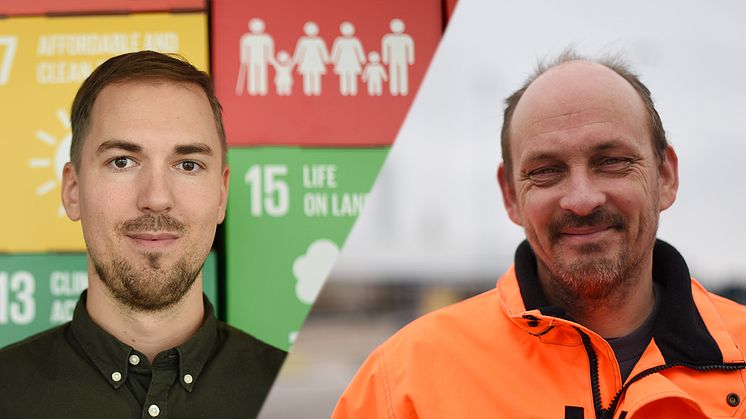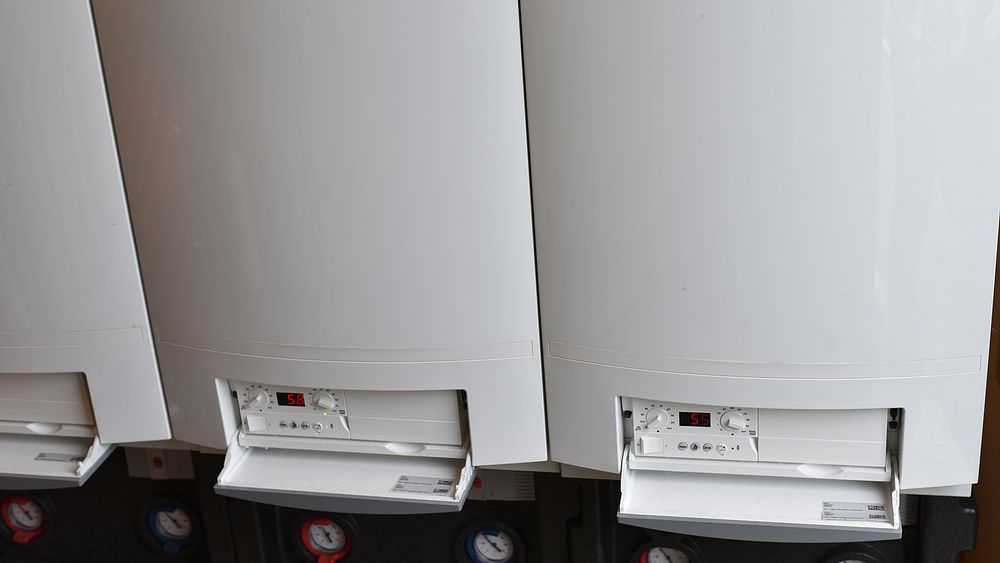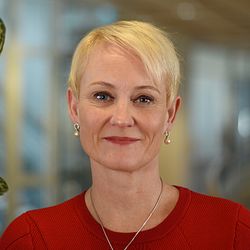
News -
Phasing out natural gas in favour of biogas - up 70 per cent less CO₂ emissions
Our Environmental Manager Jonatan Stoltz Holgersson has been working at CMP since March 2021. In the role of Environmental Manager Jonatan acts as an advisory expert for the coordination of CMP’s environmental and sustainability initiatives. As a part of these responsibilities he engages in dialogues with the governmental authorities regarding environmental issues and participates in various networks with sustainability as their focus.
CMP established has a clear target of being climate neutral in our own operations by 2025. An integral part of this work is our transition from natural gas to biogas for the heating of CMP’s properties in Malmö. The decision to phase out natural gas was made near the end of 2020 and the shift was accomplished in the beginning of last year.
“It was my colleague Kim Ekstrøm at our Purchasing Department who initiated and negotiated the shift of the fuel, as he saw an opportunity and potential to drastically reduce greenhouse gas emissions by phasing out natural gas in favour of biogas in our heating boilers in Malmö. In Malmö, many of our properties and buildings have been heated by gas combustion however since the first of January 2021 we are now using only biogas,” explains Jonatan.
Natural gas is an organic product, and is classified as a fossil fuel. The production of natural gas occurs when stocks of decaying plant and animal substances are exposed to intense heat and high pressure underground for long periods of time. On the other hand, biogas is classified as a renewable fuel. Biogas shares many chemical similarities with natural gas, however the production of biogas takes place via digestion of organic matter, such as collected food residues from households and CMP’s offices, and therefore is part of a larger cycle towards an eco-efficient society. Plus biogas is produced at a much faster rate compared to natural gas. The production of biogas takes about 30 to 40 days, while the production of natural gas process can take thousands to millions of years.
“The benefits from phasing out natural gas in favour of biogas are significant. We can expect a reduction of about 70 per cent in the CO₂ emissions in the combustion process itself in the heating boilers, which is something that is self-evident positive. It is difficult however to specify an exact carbon footprint, as the combustion of gas is affected by the outdoors temperature. A cold winter means a greater consumption of gas, be it natural gas or biogas,” notes Jonathan.

New heating boilers that run on the renewable fuel biogas.
Our Equipment Coordinator Fredrik Öberg has been working with operations and maintenance at CMP for over 16 years and it is Fredrik who has implemented the changes in practical terms.
“The transition from natural gas to biogas has gone really smoothly. We have replaced some heating boilers with brand new ones, and adjusted our older heating boilers that we have kept so that these can run on biogas instead of natural gas. How I experienced it is that since the transition to biogas the boilers are doing better and that they require less maintenance than they did before, so actually there have been positive changes in several ways,” reports Fredrik.

The terminals in Malmö are illuminated by LED lights.
Another project that is underway is the switch from HPS (high-pressure sodium) lamps to LED lights for the outdoor lighting at the terminals in Malmö.
“The replacement of light bulbs with LED lights is an ongoing project and we expect to be able to see savings 55-60%, as we use less energy than before. As a port, we of course have an immense amount of lighting on our property, especially in locations where the operations in the port require that the lighting is running 24/7. Not only are LED lights more effective – resulting in a significant energy savings –but also have a much longer lifespan than the high-pressure sodium lamps, meaning we also save in maintenance costs,” notes Fredrik in conclusion.



